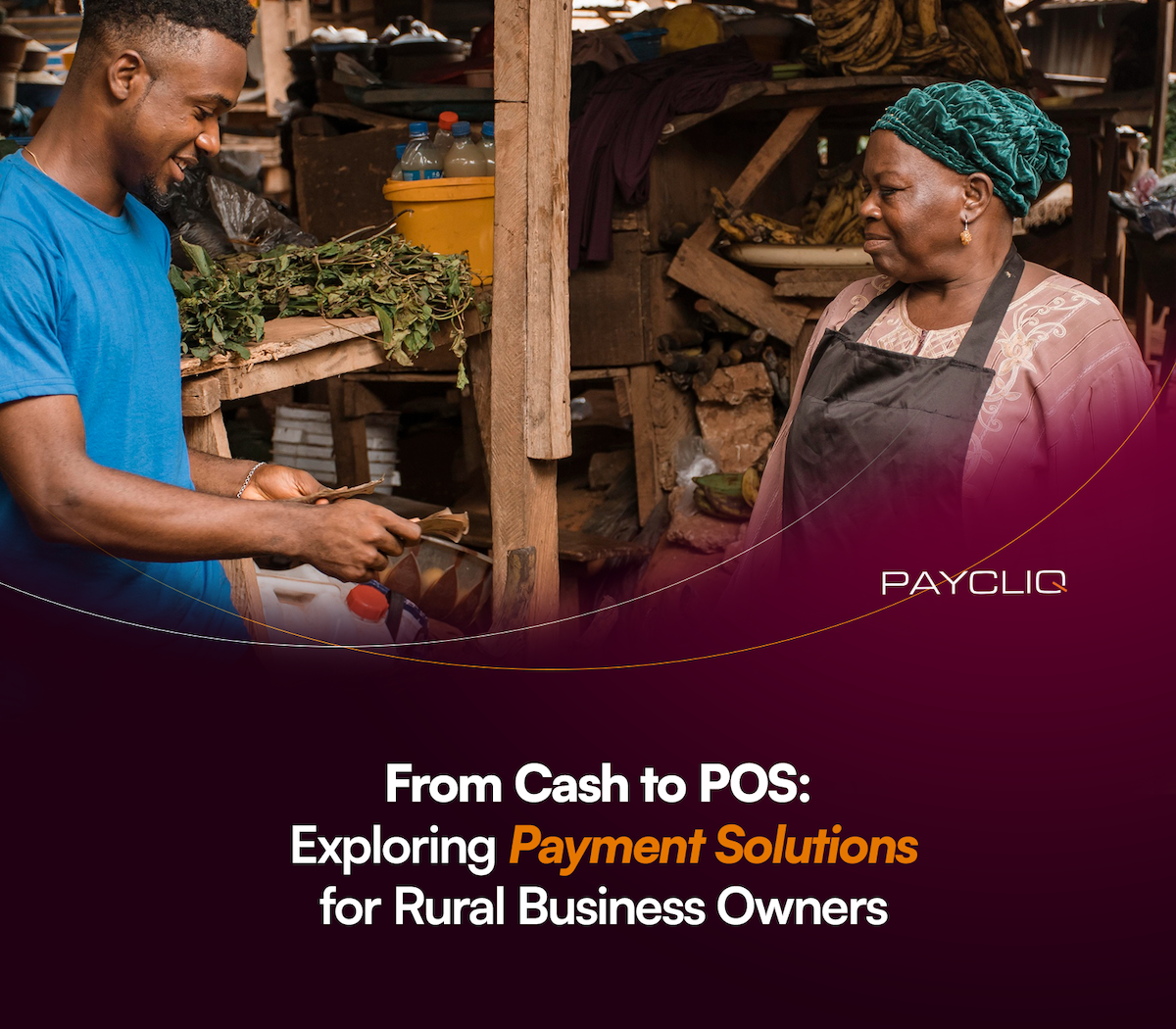For decades, cash ruled commerce in rural areas. Yes, there was a time when business owners would never agree to any other payment method except cash. But times are changing, and even a fruit seller or local meat seller somewhere in Bodija Market, Ibadan now suggests transfers when you haggle prices because of limited cash with you. The truth is that point-of-sale systems help merchants simplify payments and grow their businesses. Though promising, this shift comes with its challenges and opportunities.
Today, we will explore how rural businesses are evolving, why POS matters, and the future of digital payments in underserved regions.
The Changing Face of Rural Businesses
Traditionally, rural markets depended on cash because limited access to banks and low digital literacy made electronic payments rare. Now, the story has changed courtesy of fintech solutions like PayCliq. More business owners now use POS terminals for everyday transactions. With a POS machine, even the smallest shop anywhere can accept card payments and access real-time transaction reports.
Why POS Matters in Rural Businesses
POS systems are business enablers, and here’s why they matter;
- Convenience: Customers no longer have to wait for their balance or ‘change’. They can pay the exact price for goods purchased through the POS system using cards or mobile wallets. No more waiting for change or visiting ATMs.
- Lower Risk of Theft: Less cash on hand means less exposure to theft, especially in open markets.
- Reduces Cash Handling: Counting cash daily is tedious and prone to errors. POS systems simplify the process.
- Tracking Sales: Every transaction is recorded because POS systems help with bookkeeping and business planning.
Challenges Facing Rural Businesses
Below are some challenges rural business owners face when adopting POS solutions;
- Network Issues: Many rural areas lack strong mobile coverage. This affects POS connectivity and speed.
- Unstable Power Supply: Most rural areas have no access to electricity supply. Those that do, experience frequent outages make it hard to charge POS devices or run them consistently.
- Digital Literacy: Some merchants, even in the urban markets, are not unfamiliar with how POS systems work. Lack of digital knowledge leads to underuse or misuse.
- Maintenance and Support: Often, POS service providers are far away from the rural market. So, when the systems, repairs, or replacements become difficult.
- Transaction Fees: Some business owners hesitate due to service charges or withdrawal fees.
Opportunities for Innovation and Growth
With the right approach, POS adoption can drive rural economic growth. Below is how;
- Training and Awareness: Digital literacy is important in using the POS systems. Service providers must show merchants how to effectively use POS systems. The knowledge will boost confidence and trust.
- Partnerships with Fintechs: Companies like Paycliq can bridge the gap by offering affordable, easy-to-use POS systems. These systems can be designed to meet rural market needs.
Our Take
The journey from cash to POS is a tech transformation that has simplified the payment system. Though there are challenges, the benefits are clear. Fintechs can partner with each other to provide better infrastructure and targeted education to rural businesses so they can thrive in a digital future.
At Paycliq, we are committed to making that future accessible, designing one POS at a time tailored to the unique needs of our customers in the urban and rural markets.



What do you think?
It is nice to know your opinion. Leave a comment.